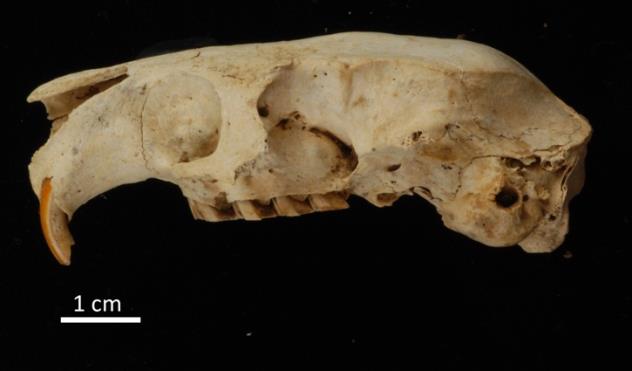As part of a collaborative NSF-funded collaborative research grant, Dr. Siobhan Cooke is recruiting two undergraduate students to conduct research in her lab during May and June of 2024.
The project focuses on niche-differentiation and extinction of the endemic mammals of Hispaniola (the island made up of the
countries Haiti and the Dominican Republic). A detailed summary of the project can be found below.

During the internship, students will learn to collect and analyze morphological data of dentition from endemic Hispaniolan rodents and primates. These data will be used to better understand the diet and ecological niches of extinct species. Students will receive training in the following:
- Micro-ct scan reconstruction and segmentation using Dragonfly and/or 3D Slicer
- Creation of three-dimensional surface scans using a white-light scanner
- Surface scan editing using Geomagic
- Data collection from 3D models
- Data analysis in R
Students will also contribute to the creation of an online field guide to the extinct mammals of Haiti by writing species accounts.
Students will receive mentorship for graduate school and grant/fellowship applications.
Location:
- Cooke Lab
- Center for Functional Anatomy and Evolution, Johns Hopkins University, School of Medicine, Baltimore, Maryland; 1830 E Monument St., Room 305, Baltimore MD 21211
Timing and Funding:
- 4 weeks; May 20-June 14 (dates flexible); hybrid options are available, but students must be present in-person for at least 2 weeks.
- Stipend $2400; travel costs to Baltimore, MD covered (i.e., one round trip plane or train ticket if from out of the area); opportunity to apply for housing support.
- Two positions are available.
Qualifications:
- Current undergrad student or within two years of receiving undergrad degree.
- Some course work or research experience in biology, conservation biology, biological anthropology, anatomy, evolutionary biology, paleontology preferred or other relevant field preferred.
- Have an interest in paleoecology, paleontology, conservation paleobiology, Caribbean fauna, and/or anatomy.
Application Requirements:
- CV or resume detailing relevant educational and work experience.
- A ~ 300–500-word essay discussing interest in biology/paleontology and any relevant background (i.e., courses taken, prior research experience).
- Applications are due April 15, but will be considered on a rolling basis.
- Students from the Caribbean or of Caribbean descent are particularly encouraged to apply.
- Send all application materials to [email protected] as a single pdf. Please put Summer Internship Application as the email subject. You will receive a confirmation email.
Project Summary: “Integrative ecological perspectives on extinction processes – a multi-proxy case study of Hispaniolan subfossil and extant rodents”
The endemic Hispaniolan rodents provide an exceptional case study for examining the triggers and timeline of island extinction events. Over 70% of mammalian extinctions in the last 500 years occurred on islands, with the Caribbean suffering the greatest species loss of any region in the world. Non-volant taxa were particularly hard hit, with an extinction rate around 85%. Hispaniola is no exception. The island once had an enormous amount of rodent diversity and is hypothesized to have been the center of an endemic Caribbean rodent radiation. However, Hispaniola experienced near total collapse of its endemic nonvolant mammals. At least 11 species of rodent were present at the beginning of the Holocene; just one (Plagidontia aedium, Cuvier’s hutia) remains today.
Remarkably little is known about the single extant species and next to nothing is known of the nowextinct species beyond body mass estimates and preliminary isotopic data for several species. Moreover, their phylogenetic relationships are a matter of debate. Information regarding the timing of species loss is also scanty. Extinctions were likely a result of anthropogenic activities, including direct persecution, predation and competition with introduced species, and extensive deforestation. However, shifting climate may have also contributed. This collaborative project brings together experts in morphometrics,
stable isotope ecology, and ancient DNA to (1) identify the ecological relationships among Hispaniola’s endemic rodents; (2) determine the timing of species loss; (3) resolve phylogenetic relationships among the now-extinct taxa; and (4) clarify extinction triggers. The research team will rely on previously collected fossil material from three paleontologically-rich caves on the Tiburon Peninsula in southwestern Haiti. The fossil collections are housed at the Florida Museum of Natural History (FLMNH). Stable isotope, radiocarbon, and ancient DNA data from the region confirm good preservation of fossil material, which is critical for the proposed analyses. This regional analysis will be the first step towards interpreting extinction triggers elsewhere in Hispaniola, as well as in other island systems.
Learn more and spread the word: Cooke Lab Internship
